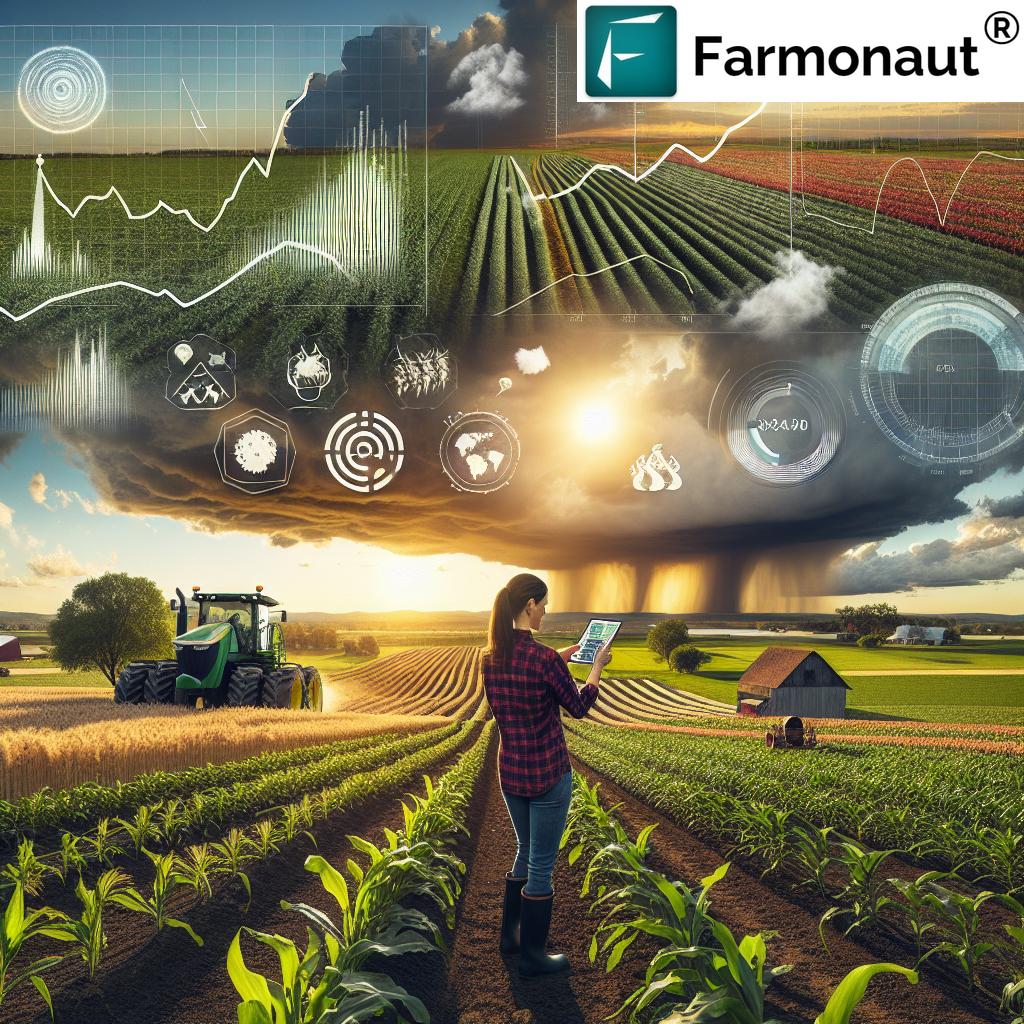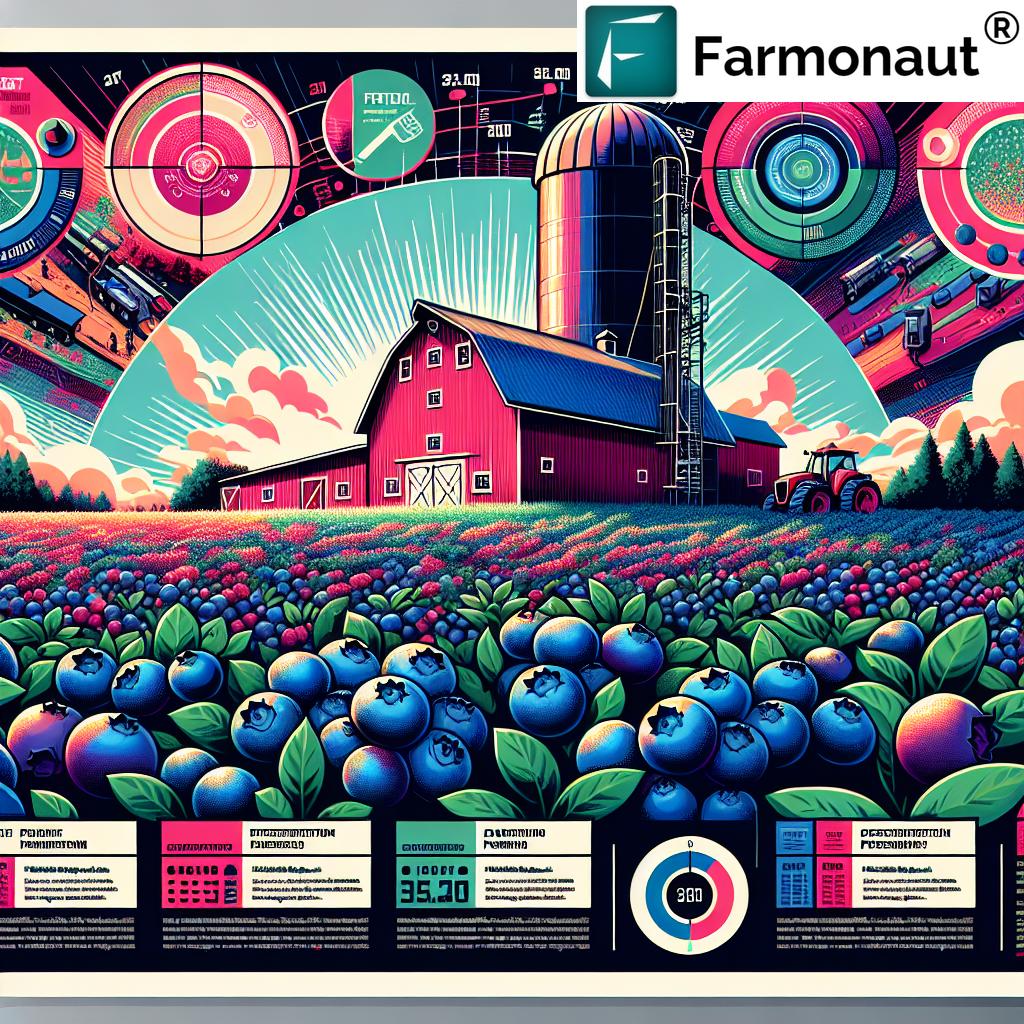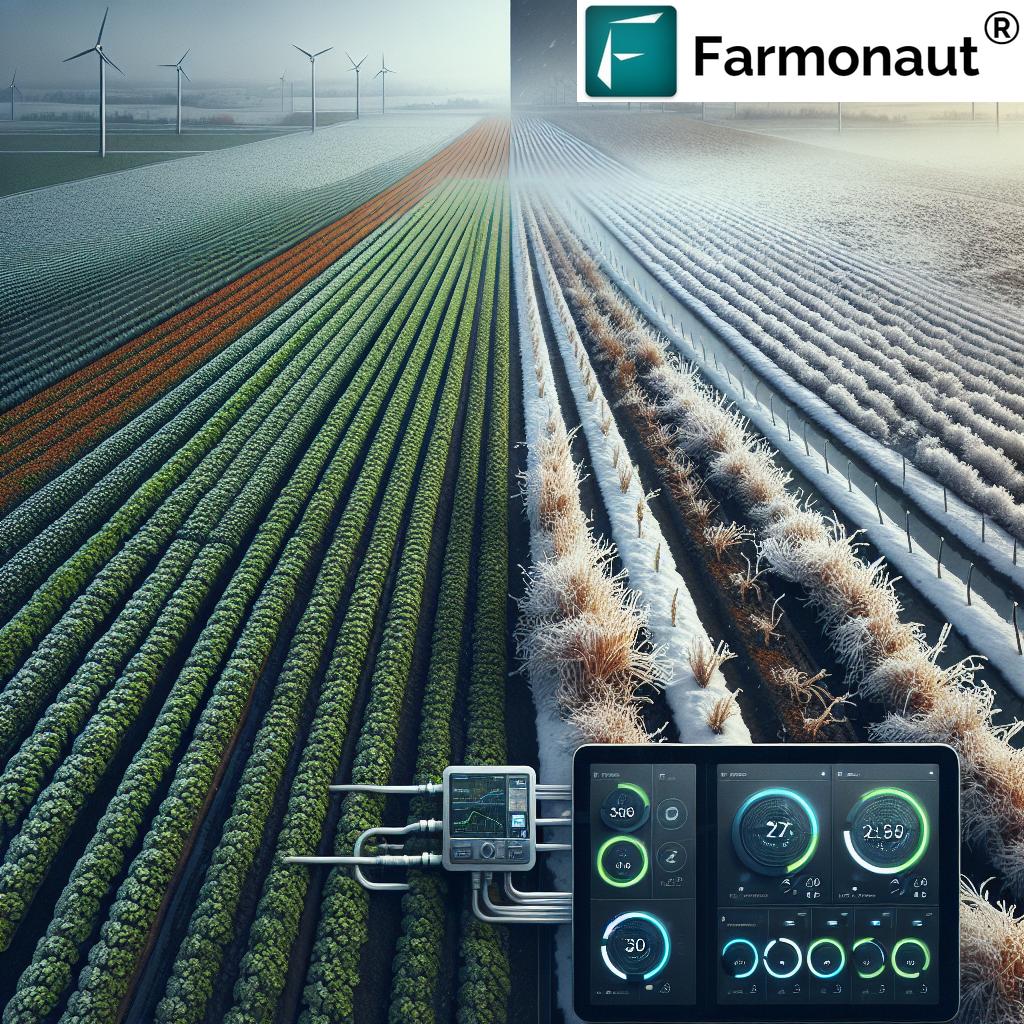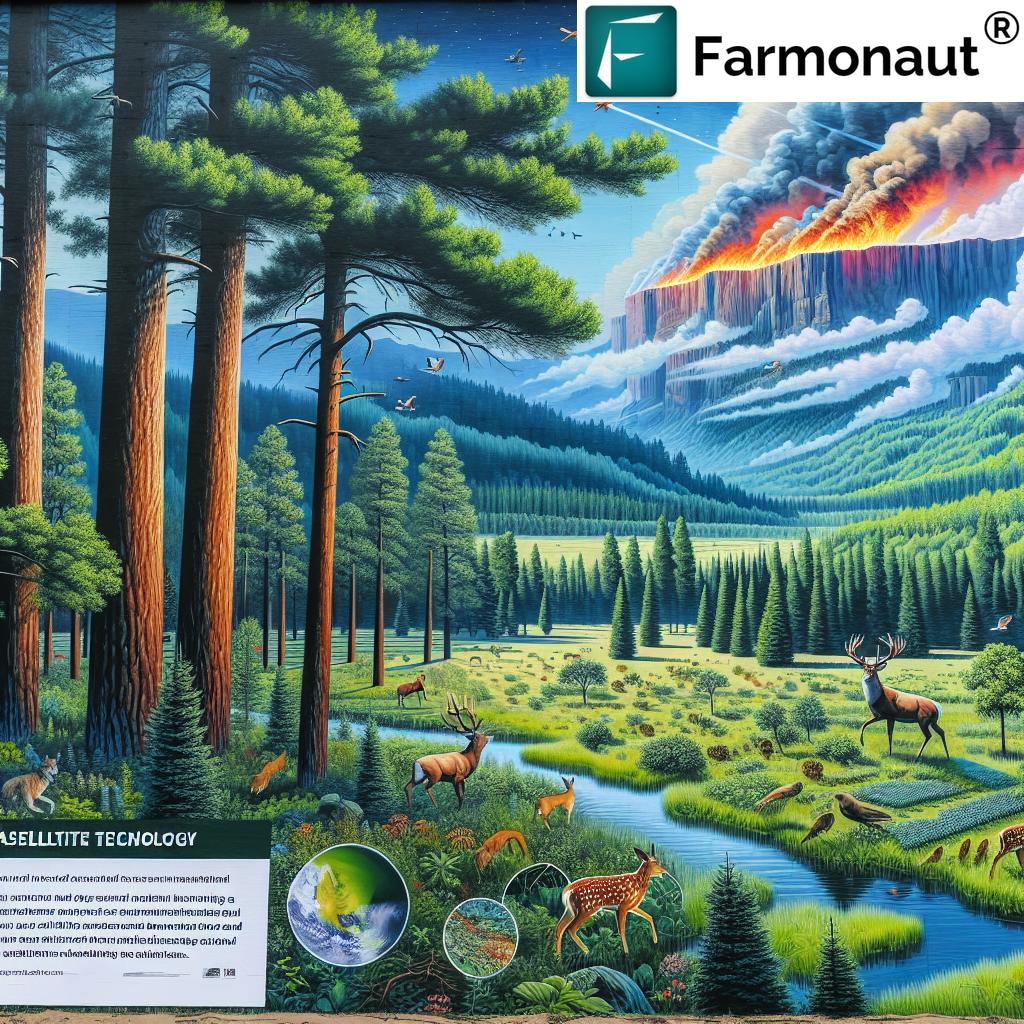Sustainable Agriculture in Bakersfield Schools: How Student-Led Plant Sales Cultivate Experiential Learning and Community Support
“The annual plant sale supports an edible schoolyard initiative, engaging students from kindergarten through elementary school in sustainable agriculture.”
Welcome to a journey of growth, learning, and community engagement in Bakersfield, California! We’re excited to share with you the inspiring story of how a school garden program is revolutionizing education through sustainable agriculture for kids. At the heart of this initiative is the annual plant sale that supports an innovative edible schoolyard project, where students learn about food sources and sustainable practices through hands-on experiences.
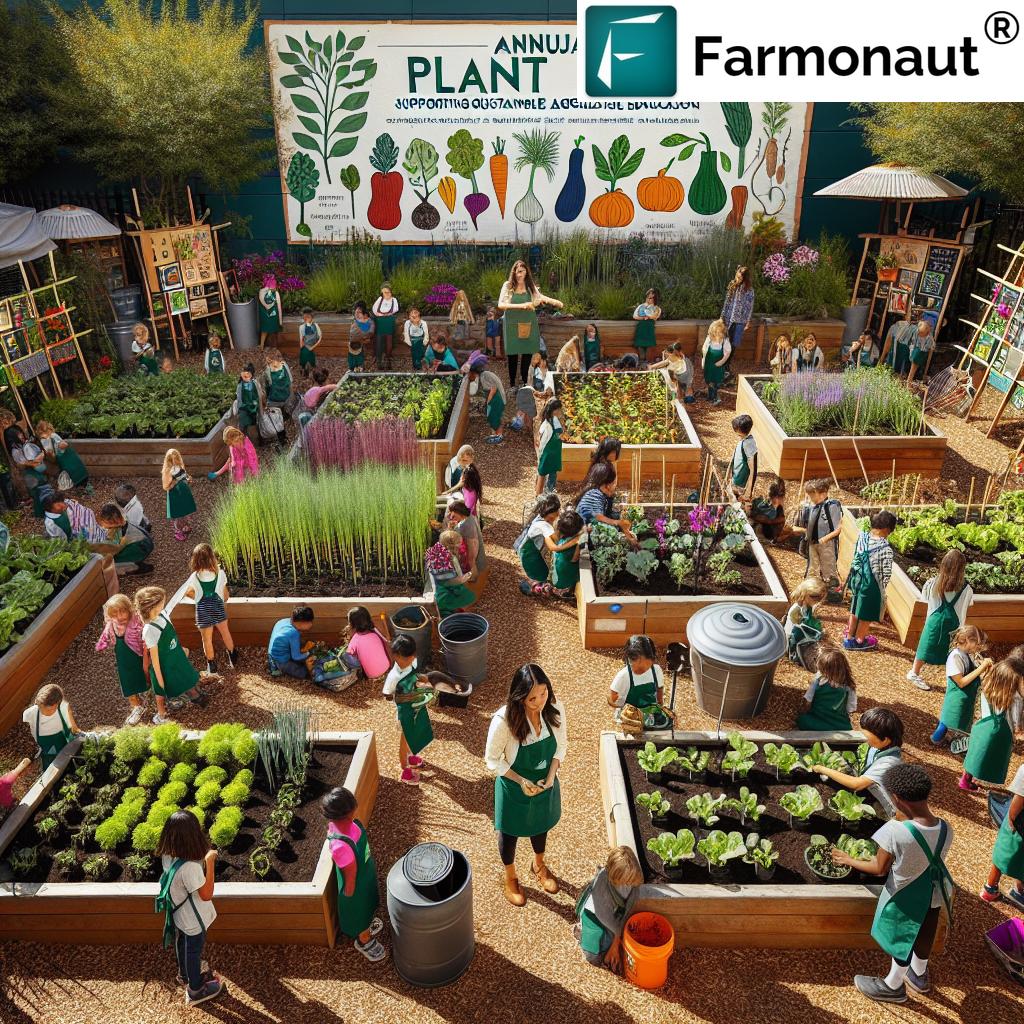
In this comprehensive blog post, we’ll explore how this unique approach to education is enriching students’ understanding of food production while promoting community involvement in sustainable food practices. From kindergarten to elementary school, children are engaging in gardening workshops, composting, and seed-to-table education, fostering a healthy relationship with food and the environment.
The Roots of the Edible Schoolyard Program
The Buena Vista Edible School Yard, a program through the Grimm Family Education Foundation, has set its roots deep in the heart of Bakersfield. This initiative aims to cultivate not just plants, but also young minds, teaching them the importance of getting their hands in the dirt and growing their own food.
Dylan Wilson, the Executive Director for the Edible School Yard Kern County, emphasizes the program’s core philosophy: “A strong model of our program is showing students where their food comes from. And when we speak of students, students are of any age. We see students from kindergarten, transitional kindergarten to adults, and every time we get to engage with them, we get to show them where their food comes from.”
Cultivating Knowledge: The Annual Plant Sale
The annual plant sale is more than just a fundraiser; it’s a celebration of learning and growth. This year, the Buena Vista Edible School Yard is offering an impressive 2,500 plants for sale, including a variety of vegetables, herbs, and flowers. But the event goes beyond mere sales – it’s an opportunity for the community to engage with the program and learn more about sustainable gardening practices.
- Gardening 101 Workshop: Attendees can participate in a hands-on session to learn the basics of starting and maintaining a garden.
- Composting 101 Workshop: This workshop teaches the importance of composting and how to do it effectively at home.
Every dollar spent at the plant sale goes directly back into the program, supporting the continuation of this valuable educational initiative.
From Seed to Table: The Educational Journey
The Edible School Yard program is designed to teach students the complete seed-to-table process. This experiential learning approach encompasses various aspects of agriculture and nutrition:
- Planting and nurturing crops
- Understanding plant life cycles
- Learning about soil health and composting
- Harvesting produce
- Preparing meals using home-grown ingredients
This comprehensive approach ensures that students gain a holistic understanding of food production and nutrition, setting the foundation for lifelong healthy eating habits and environmental stewardship.
Student Perspectives: Growing Knowledge and Passion
The impact of the Edible School Yard program is best illustrated through the experiences of the students themselves. Soliela Martinez, who has been attending Buena Vista since transitional kindergarten, shares her enthusiasm: “At home, I have my own little garden with my family, so it’s kind of nice to learn here to help at home. It’s really special with the kitchen and the garden because in the garden, we plant stuff, make stuff, and use it in the kitchen to make all the food, which is really good.”
Eloise Hall, another long-time participant in the program, adds, “Every month, we switch off between garden and kitchen, and it’s really fun because we get to learn about all the different plants and animals and the cycle of how plants grow.”
These testimonials highlight how the program is not just teaching students about agriculture, but also inspiring them to apply their knowledge at home, creating a ripple effect of sustainable practices throughout the community.
The Impact of Experiential Learning in Agriculture
Experiential learning in agriculture offers numerous benefits for students:
- Hands-on Science Education: Students learn about biology, ecology, and chemistry through practical applications in the garden.
- Nutrition Awareness: Growing their own food helps students understand the importance of fresh, healthy ingredients in their diet.
- Environmental Stewardship: Gardening teaches students about sustainable practices and the importance of caring for the environment.
- Life Skills: Students develop patience, responsibility, and teamwork through gardening activities.
- Community Engagement: The plant sale and other events connect students with the broader community, fostering a sense of pride and belonging.
“Students participate in gardening workshops, composting, and seed-to-table education, learning to grow vegetables, herbs, and flowers through hands-on experiences.”
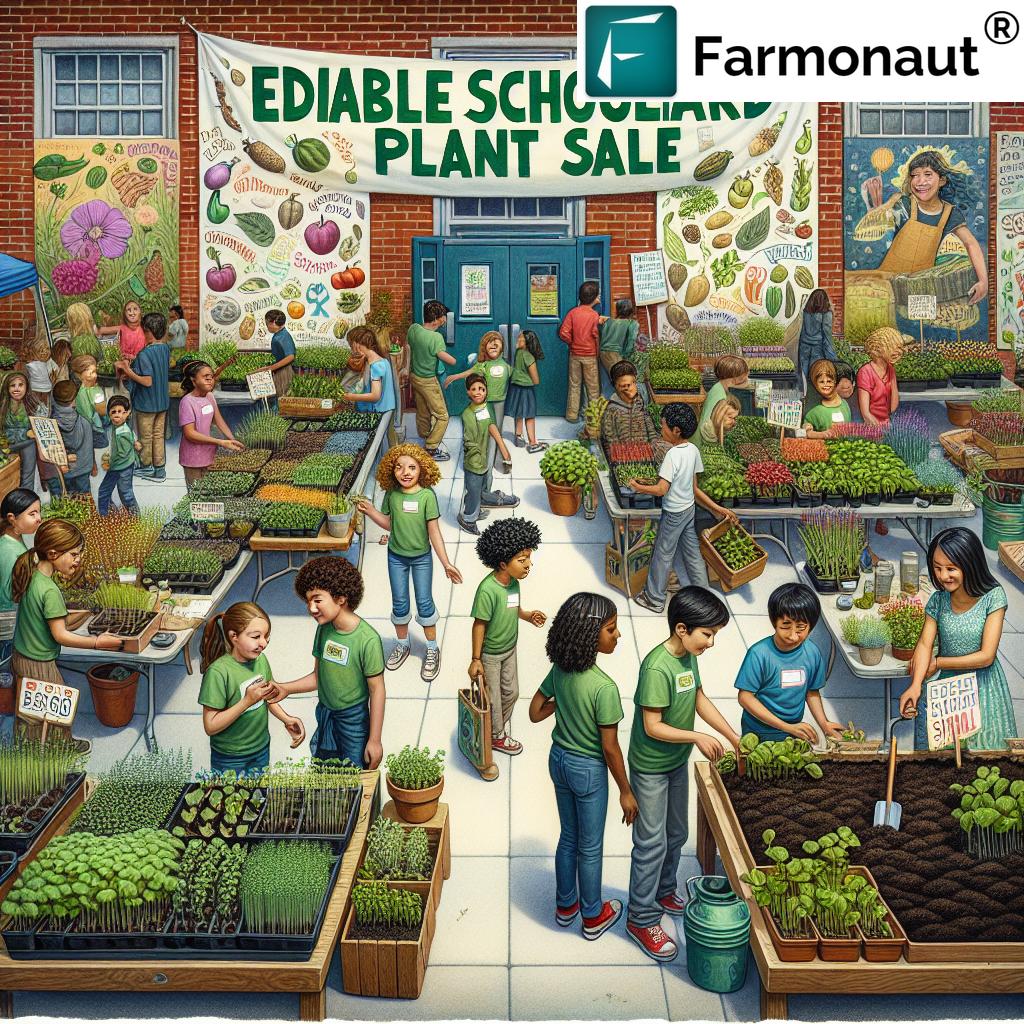
The Role of Technology in Modern Agriculture Education
While the Edible School Yard program focuses on hands-on learning, it’s worth noting that modern agriculture also incorporates advanced technologies to enhance productivity and sustainability. For instance, satellite-based farm monitoring systems are revolutionizing how we approach crop management and agricultural education.
These technologies offer real-time insights into crop health, soil moisture levels, and other critical metrics, allowing farmers to make informed decisions about irrigation, fertilizer usage, and pest management. While not directly part of the school garden program, understanding these advancements can provide students with a broader perspective on the future of agriculture.
Sustainable Practices in School Gardens
The Buena Vista Edible School Yard incorporates various sustainable practices that students learn and apply:
- Composting: Students learn how to turn food scraps and garden waste into nutrient-rich soil.
- Water Conservation: Efficient irrigation techniques and drought-resistant plant selection are emphasized.
- Organic Gardening: The program teaches natural pest control methods and avoids the use of chemical pesticides.
- Crop Rotation: Students learn how rotating crops helps maintain soil health and prevent pest problems.
- Biodiversity: The garden includes a variety of plants to support a healthy ecosystem and attract beneficial insects.
These practices not only benefit the school garden but also serve as valuable lessons that students can apply in their own homes and future endeavors.
Community Impact and Support
The Edible School Yard program extends its influence beyond the school grounds, creating a ripple effect throughout the Bakersfield community. Here’s how:
- Family Engagement: Students share their knowledge with family members, often inspiring home gardening projects.
- Local Food Movement: The program supports the local food movement by encouraging families to grow their own produce or purchase from local farmers.
- Environmental Awareness: As students learn about sustainable practices, they become advocates for environmental stewardship in their community.
- Community Events: The annual plant sale and other events bring together community members, fostering connections and shared learning experiences.
By supporting the plant sale and participating in workshops, community members not only contribute to the program’s continuation but also gain valuable knowledge about sustainable gardening practices.
The Future of Agriculture Education
As we look to the future, programs like the Buena Vista Edible School Yard are paving the way for a new generation of environmentally conscious citizens. By combining traditional gardening techniques with modern sustainable practices, these initiatives are preparing students for a world where sustainable agriculture will play an increasingly crucial role.
Moreover, the integration of technology in agriculture education is opening new avenues for learning. For instance, carbon footprinting tools can help students understand the environmental impact of different farming practices, while blockchain-based traceability systems can teach them about food supply chains and transparency in agriculture.
Student Garden Program Impact
| Grade Level | Garden Activities | Skills Learned | Community Impact |
|---|---|---|---|
| Kindergarten – 2nd Grade | Planting seeds, watering, simple harvesting | Basic plant care, observation skills | ~500 plants sold annually |
| 3rd – 4th Grade | Composting, pest identification, soil preparation | Understanding ecosystems, basic nutrition | ~100 community members engaged in workshops |
| 5th – 6th Grade | Crop planning, advanced harvesting, cooking with produce | Sustainable practices, meal planning, leadership | ~2,500 plants available at annual sale |
Conclusion: Nurturing Growth Beyond the Garden
The Buena Vista Edible School Yard program in Bakersfield is more than just a school garden – it’s a comprehensive educational initiative that’s cultivating not only plants but also young minds and a sustainable community. Through hands-on experiences, students are gaining invaluable knowledge about food production, nutrition, and environmental stewardship.
As we’ve explored in this blog post, the annual plant sale is a testament to the program’s success and its deep roots in the community. It’s an opportunity for everyone to support education while exploring the world of sustainable gardening. By participating in this initiative, we’re not just buying plants; we’re investing in a future where our children understand and value the importance of sustainable agriculture.
We encourage you to support the Buena Vista Edible School Yard’s annual plant sale on April 5th from 9:00 AM to 1:00 PM. Every plant purchased, every workshop attended, contributes to the growth of this vital educational program. Together, we can cultivate a greener, more sustainable future for Bakersfield and beyond.
FAQ Section
- Q: How can I participate in the Buena Vista Edible School Yard plant sale?
A: The plant sale will be held on April 5th from 9:00 AM to 1:00 PM at the Buena Vista Edible School Yard. You can purchase plants and attend workshops on Gardening 101 and Composting 101. - Q: What types of plants are available at the sale?
A: The sale offers 2,500 plants, including a variety of vegetables, herbs, and flowers. - Q: How does the money from the plant sale support the program?
A: Every dollar spent at the plant sale goes directly back into the Edible School Yard program, supporting its continuation and growth. - Q: Can non-students participate in the gardening workshops?
A: Yes, the workshops are open to community members, providing an opportunity for everyone to learn about sustainable gardening practices. - Q: How does the Edible School Yard program benefit students?
A: The program provides hands-on learning experiences in gardening, cooking, and nutrition. It teaches students about sustainable practices, food sources, and fosters a healthy relationship with food.
As we continue to support and grow programs like the Buena Vista Edible School Yard, we’re not just cultivating plants – we’re nurturing a sustainable future for our children and our community. Let’s come together to support this invaluable initiative and help it flourish for years to come.
Earn With Farmonaut: Affiliate Program
Earn 20% recurring commission with Farmonaut’s affiliate program by sharing your promo code and helping farmers save 10%. Onboard 10 Elite farmers monthly to earn a minimum of $148,000 annually—start now and grow your income!
For developers interested in integrating agricultural data into their applications, check out the Farmonaut API and the comprehensive API Developer Docs.





